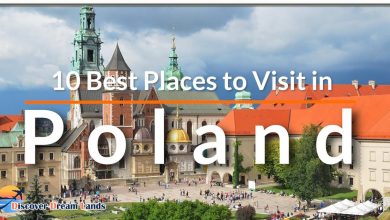Poland
-

Top 5 Tourist Attractions You Must See in Poland
Top 5 Tourist Attractions You Must See in Poland : Poland, with its rich cultural heritage and diverse landscapes, is…
Read More » -

10 Best Places to Visit in Poland
Introduction 10 Best Places to Visit in Poland : Poland is a country rich in history, culture, and natural beauty.…
Read More »
